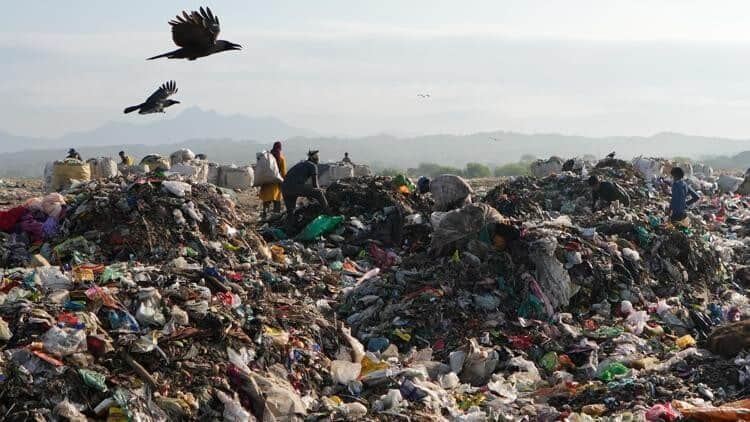
S-Korea talks explained: Can world agree on plastic pollution treaty
What's the story
The final round of negotiations for a legally binding treaty to combat plastic pollution is underway in Busan, South Korea. The discussions, attended by national delegations, industry representatives, scientists and environmentalists, seek to tackle the global production of nearly half a billion tons of plastic every year. The figure has more than doubled over the past two decades.
Urgency
'End plastic pollution before it ends us'
South Korea's Minister of Environment, Kim Wansup, emphasized the seriousness of the matter during the opening session. "We must end plastic pollution before plastic pollution ends us," he said. The talks seek to drastically reduce the millions of tons of plastic waste produced annually. However, past meetings have highlighted major differences in goals and interests between the countries involved.
Impact
Plastic pollution: A global environmental and health concern
Researchers estimate a truckload of plastic enters the oceans every minute, raising alarm over microplastics discovered in the environment and human bodies. The production and transportation of plastics are major contributors to greenhouse gas emissions. If plastics were a country, they would be the fifth-largest global emitter. Recycling efforts are far from adequate, with only 9% of global plastic waste being recycled.
Strategies
Divergent views on tackling plastic pollution
A Norway-Rwanda coalition is pushing for limits on plastic production and hazardous chemicals. However, countries are split on whether to limit plastic production or improve waste management and recycling. Environmental groups such as Greenpeace support reducing plastic production and eliminating toxic chemicals. Industry leaders back redesigning plastics for reuse and recycling while acknowledging their societal benefits.
Opposition
US stance and opposition from oil-rich nations
The US' position could be key in these negotiations, with fears President Donald Trump's re-election could change its current support for the treaty. Opposition from oil- and gas-heavy nations such as Saudi Arabia and Russia also makes it difficult to reach a consensus. Senegal's Ndiaye Cheikh Sella said if the US were to step back from negotiations, it would be a disappointment. "The US really engaged on this, but if they step back, it's a big disappointment," he said.
Opportunity
UN Environment Programme calls talks a 'historic opportunity'
UN Environment Programme Executive Director Inger Andersen called the talks a "historic opportunity" to tackle plastic pollution effectively. Without policy changes, global plastics production could hit 736 million tons by 2040. The result of these discussions will decide whether binding limits on chemicals and single-use plastics will be introduced or if the focus will remain solely on improving waste management.